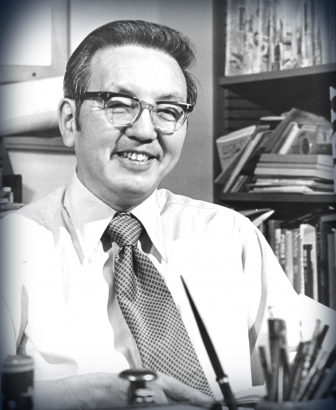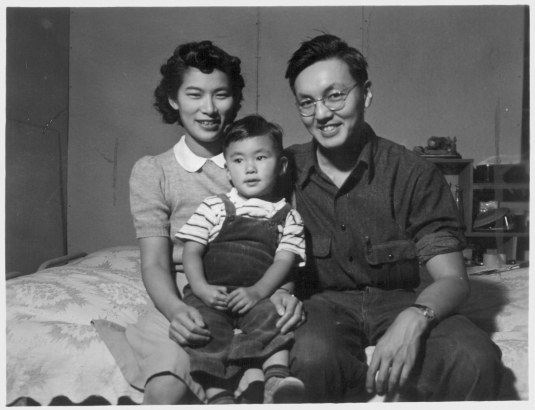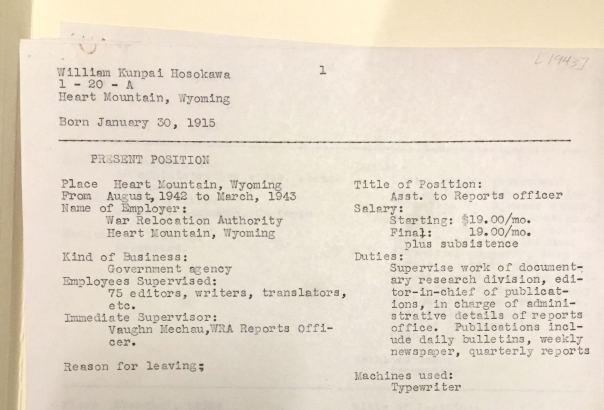January 30, 2016, marked what would have been the 101st birthday of notable Denverite, Bill Hosokawa.
Mr. Hosokawa's papers have recently been processed by our archival staff and are now available for research in the Denver Public Library's Western History and Genealogy Department (WHG).
These papers (Bill Hosokawa Papers, WH1085) document Hosokawa’s post-World War II career as a journalist, author and diplomat in Denver, as well as his lifelong work to inform a wider audience about Japanese American history and culture.
The Bill Hosokawa Papers also chronicle the relocation of Japanese Americans to internment camps during World War II and the subsequent redress movement that was forged by the Japanese American Citizens League (JACL), with which Hosokawa was affiliated.
Series 1 of the collection includes witness testimonial statements from hearings conducted by the Commission on Wartime Relocation and Internment of Civilians in Washington, D.C., Los Angeles, San Francisco, Seattle and Chicago in 1981. These statements provide detailed information about the experiences of Japanese Americans who were detained in relocation centers during World War II and are organized according to hearing date and surname.
When President Franklin D. Roosevelt signed Executive Order 9066, which "authorized the evacuation of all persons deemed a threat to national security from the West Coast to relocation centers further inland," on February 19, 1942, Bill Hosokawa, his wife Alice, and their one-year-old son Michael prepared to be moved. On May 15, 1942, they were sent by bus to fairgrounds in Puyallup, Washington. For three months, the Hosokawa family lived among 7,000 other prisoners in cabins divided into ten-foot living spaces.
In August 1942, the Hosokawa family was moved to the Heart Mountain Relocation Center in Wyoming.
While detained there, Hosokawa edited a weekly newspaper called the Heart Mountain Sentinel. After 14 months at Heart Mountain, Hosokawa and his family moved to Des Moines, Iowa, where he worked as a copy editor for the Des Moines Register until 1946.
That year, he and his family moved to Denver so that Hosokawa could begin work at the Denver Post. During his 37 years at the newspaper, he held a variety of reportorial, editorial and administrative positions. He was nominated for the Pulitzer Award in International Reporting for coverage of the Zengakuren student riots in Japan in 1961. From 1976 until 1983, the last seven years of his tenure, Hosokawa was the Denver Post’s editorial pages editor.
Hosokawa was also a freelance magazine writer, a columnist for the Pacific Citizen and Rocky Mountain News, and an author of several books (most notably, Nisei: The Quiet Americans). He served on the National Japanese American Memorial Foundation’s Board of Directors and was Colorado's Honorary Consul General of Japan.
Materials in the Bill Hosokawa Papers include correspondence; book manuscripts and article drafts; audio and video cassettes, tapes, and discs; court documents; testimonial statements; photographic prints and negatives and scrapbooks. Additionally, books authored by Mr. Hosokawa are also available through DPL.




Comments
Bill had a life well lived!
Bill had a life well lived!
Add new comment